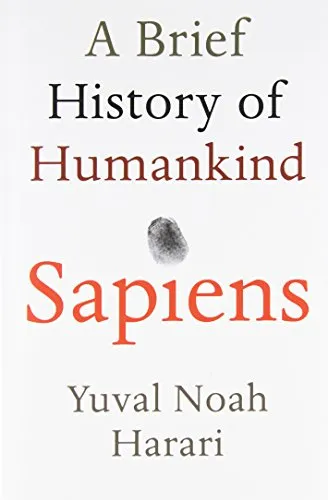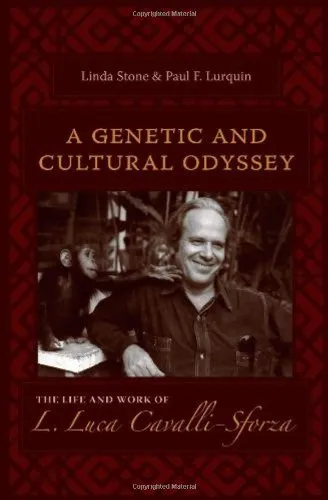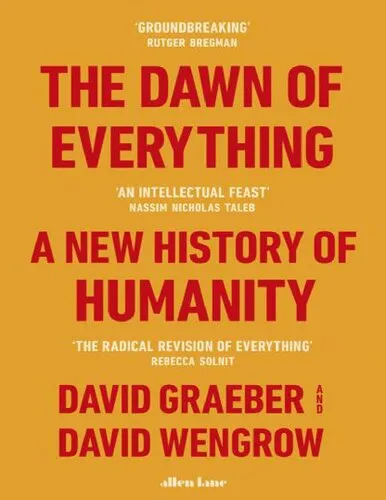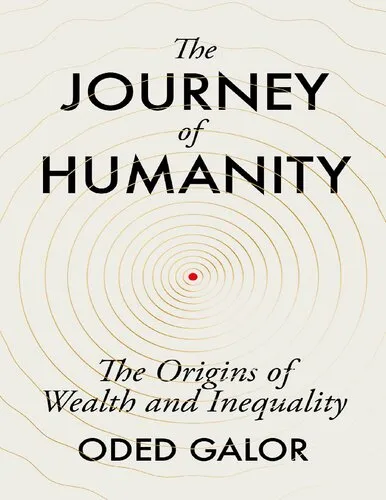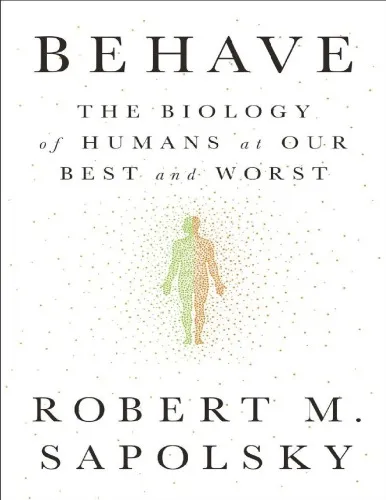Sapiens: A Brief History of Humankind
5.0
بر اساس نظر کاربران

شما میتونید سوالاتتون در باره کتاب رو از هوش مصنوعیش بعد از ورود بپرسید
هر دانلود یا پرسش از هوش مصنوعی 2 امتیاز لازم دارد، برای بدست آوردن امتیاز رایگان، به صفحه ی راهنمای امتیازات سر بزنید و یک سری کار ارزشمند انجام بدینکتاب های مرتبط:
Persian Summary
مقدمهای بر کتاب 'Sapiens: A Brief History of Humankind'
کتاب 'Sapiens: A Brief History of Humankind' نوشته یووال نوح حراری، یکی از پرفروشترین و تاثیرگذارترین کتابهای تاریخ بشر در سالهای اخیر است. این کتاب به طرز شگفتانگیزی داستان توسعه و پیشرفت گونه انسان، یعنی Homo Sapiens، را از آغاز تا كنون شرح میدهد.
خلاصهای جامع از کتاب
کتاب 'Sapiens' با بررسی سه انقلاب بزرگ در تاریخ بشر، روایتی پویا و جذاب از تکامل انسان ارائه میدهد: انقلاب Cognitive، انقلاب کشاورزی و انقلاب صنعتی. حراری این انقلابها را بهعنوان نقاط عطفی در تاریخ بشر معرفی میکند که نهتنها زندگی انسانها، بلکه جهت دنیا را تغییر دادند.
در بخش اول کتاب، 'Sapiens' بر اهمیت انقلاب Cognitive تمرکز دارد؛ دورهای که Homo Sapiens توانست زبان پیچیده و فرهنگهای عظیمی را توسعه دهد. سپس در ادامه کتاب، با گذر به انقلاب کشاورزی، حراری توضیح میدهد چگونه انتقال به کشاورزی به کلی ساختار اجتماعی و اقتصادی جوامع را تغییر داد. در نهایت، انقلاب صنعتی و پیامدهایش برای جامعه انسانی مورد بررسی قرار میگیرد، و توسعه فناوری و تاثیرات مثبت و منفی آن بر زندگی مدرن تحلیل میشود.
نکات کلیدی کتاب
- ادعاهای هوشمندانه درباره قدرت و ضعفهای رمز جوییها و اثباتهای علمی.
- تبیین چگونگی تأثیر گذاری نظامهای سیاسی و اقتصادی بر ساختارهای اجتماعی.
- تحلیل هویت و هنجارهای فرهنگی در طول تاریخ و تأثیر آنها بر جوامع مدرن.
- بررسی نقش تخیلات و اعتقادات جمعی در شکلگیری و تداوم امپراتوریها و مذهبها.
- شناخت چالشهای اخلاقی و محیطی ناشی از پیشرفتهای فناوری در عصر نوین.
جملات مشهور از کتاب
«انسانها در میان حیوانات تنها هستند که قادر به همکاری انعطافپذیر و گسترده هستند.»
«مردم عادی به ایدههای ذهنی گره خوردهاند و به ندرت سوال میکنند که چگونه و چرا باوری خاص را پذیرفتهاند.»
چرا این کتاب مهم است
کتاب 'Sapiens' نه تنها درک عمیقی از تاریخ بشر ارائه میدهد، بلکه به بررسی معضلات و فرصتهای پیش روی گونه ما در آینده میپردازد. این کتاب چالشهای پیچیدهای را که جامعه جهانی با آنها روبرو است، مانند تغییرات اقلیمی، نزاعهای ژئوپلیتیک و انقلاب فناوری به وضوح بیان میکند.
حراری با ترکیب دادههای تاریخی، انسانشناسی و فلسفه نگرشی جدید به تواناییها و ضعفهای انسانی ارائه میکند. این کتاب برای هر کسی که به درست کردن تصویر بهتری از جایگاه انسان در تاریخ علاقهمند است، یک منبع ارزشمند است.
Welcome to the introduction of "Sapiens: A Brief History of Humankind," a thought-provoking journey through the expansive landscape of human history. Authored by Yuval Noah Harari, this book elucidates the evolution of Homo sapiens, exploring the profound shifts that shaped our species from insignificant apes to rulers of the world.
Detailed Summary of the Book
The tale of human history, as presented in "Sapiens," is a narrative of the various revolutions that have steered humanity's course. Harari categorizes these pivotal transformations into three major chapters: the Cognitive Revolution, the Agricultural Revolution, and the Scientific Revolution.
In the Cognitive Revolution, approximately 70,000 years ago, Homo sapiens developed an ability to think and communicate in novel ways, leading to unprecedented cooperation and societal structures. This foundational shift facilitated the spread of our species across the planet, allowing us to manipulate our surroundings and outcompete other human species.
Next, the Agricultural Revolution, occurring around 10,000 years ago, marked our transition from nomadic tribes to settled societies. This change fostered the development of complex hierarchies and systems of governance but also introduced social inequality and environmental degradation.
The Scientific Revolution, which began about 500 years ago, equipped us with immense power through advancements in knowledge and technology. This era has rekindled our quest for truth and transformed how we perceive the universe, while also highlighting the potential dangers of our newfound capabilities.
Key Takeaways
- The importance of shared myths and imagined realities, such as religion and nation-states, which enabled large-scale human cooperation.
- The paradox of progress, wherein technological advancements solve certain issues but create new ones, exemplified by the Agricultural Revolution's impact on human health and society.
- The understanding of happiness in relation to biological imperatives, challenging the notion that increased wealth and power lead to greater satisfaction.
- The ongoing reshaping of human identity and society as biotechnology and artificial intelligence blur the lines between organic and inorganic life.
Famous Quotes from the Book
"People are usually afraid of change because they fear the unknown. But the single greatest constant of history is that everything changes."
"History is something that very few people have been doing while everyone else was ploughing fields and carrying water buckets."
Why This Book Matters
"Sapiens" matters because it challenges readers to question the narratives that have traditionally shaped human history. Harari provides a fresh perspective that invites introspection about our past successes and failures, urging readers to consider the implications of our actions on the future.
By examining key turning points in human development, Harari encourages us to reflect on our species' ecological and ethical responsibilities. In a world facing rapid technological and environmental changes, understanding where we came from can provide vital insights into where we might be headed.
In conclusion, "Sapiens: A Brief History of Humankind" is not just a chronicle of history but a call to understand the factors that continue to drive human evolution. This book is essential reading for anyone interested in comprehending the complex tapestry of the human condition and our place in the cosmos.
دانلود رایگان مستقیم
شما میتونید سوالاتتون در باره کتاب رو از هوش مصنوعیش بعد از ورود بپرسید
دسترسی به کتابها از طریق پلتفرمهای قانونی و کتابخانههای عمومی نه تنها از حقوق نویسندگان و ناشران حمایت میکند، بلکه به پایداری فرهنگ کتابخوانی نیز کمک میرساند. پیش از دانلود، لحظهای به بررسی این گزینهها فکر کنید.
این کتاب رو در پلتفرم های دیگه ببینید
WorldCat به شما کمک میکنه تا کتاب ها رو در کتابخانه های سراسر دنیا پیدا کنید
امتیازها، نظرات تخصصی و صحبت ها درباره کتاب را در Goodreads ببینید
کتابهای کمیاب یا دست دوم را در AbeBooks پیدا کنید و بخرید
1691
بازدید5.0
امتیاز1
نظر98%
رضایتنظرات:
5.0
بر اساس 1 نظر کاربران
avneesh
2 سپتامبر 2025، ساعت 4:52
This is an essential read for everyone—one of the greatest books ever written. Every lesson a book can offer is found within these pages; its wisdom is both profound and abundant.
Questions & Answers
Ask questions about this book or help others by answering
No questions yet. Be the first to ask!
